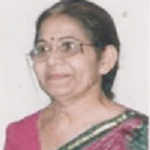S Chhabra
Mahatma Gandhi Institute of Medical Sciences, India

Biography:
S Chhabra is a Director Professor of Obstetrics and Gynecology in the College of Mahatma Gandhi Institute of Medical Sciences, India and CEO of Akanksha Shishu Kalyan Kendra and OSD in Dr. Sushila Nayar Hospital, Sewagram.
Abstract:
Women suffer globally, with variations in the burden of sufferings of their body and mind. On one side their body structure, functions, make them vulnerable to various disorders, on the other side, there are society’s gender inequalities and norms. The extent of the disorders with which they suffer is mammoth. In India with world’s 15% population, bias starts with attempts at prevention of a girl’s entry into her mother’s womb and female foeticide, infanticide, problems of inequalities in childhood and during adolescence are persisting. Women suffer during reproductive life and beyond. There is growing burden of infertility because of various reasons with sequale of work up, therapy, under assisted reproduction (ART) and surrogacy also. Here also it is women who suffer all the dangers of surgeries, hormones and mental trauma. Pregnancy and birth related disorders, dysfunctions continue to kill women around the world. Preventable maternal deaths and severe illnesses continue in resource poor countries and woman’s life is at stake with each pregnancy. Maternal mortality, severe morbidity have increased even in affluent America. There are consequences of reproductive health events, even with normal functions, more so with dysfunctions as they age, be it Genital prolapsed or Stress continence. Gynaecological cancers are common with challenges of early diagnosis and management. Cervical cancer almost preventable continues to kill women. Other gyn. cancers also continue to affect woman’s life around the world with delayed diagnosis and complicated therapies. Over all women have to walk on the slippery road of their health journey from prebirth to death, Womb to Tomb. All attempts need to be made to make the health journey of a woman as safe as possible by preventing preventable and for others appropriate, affordable, accessible and timely therapies.